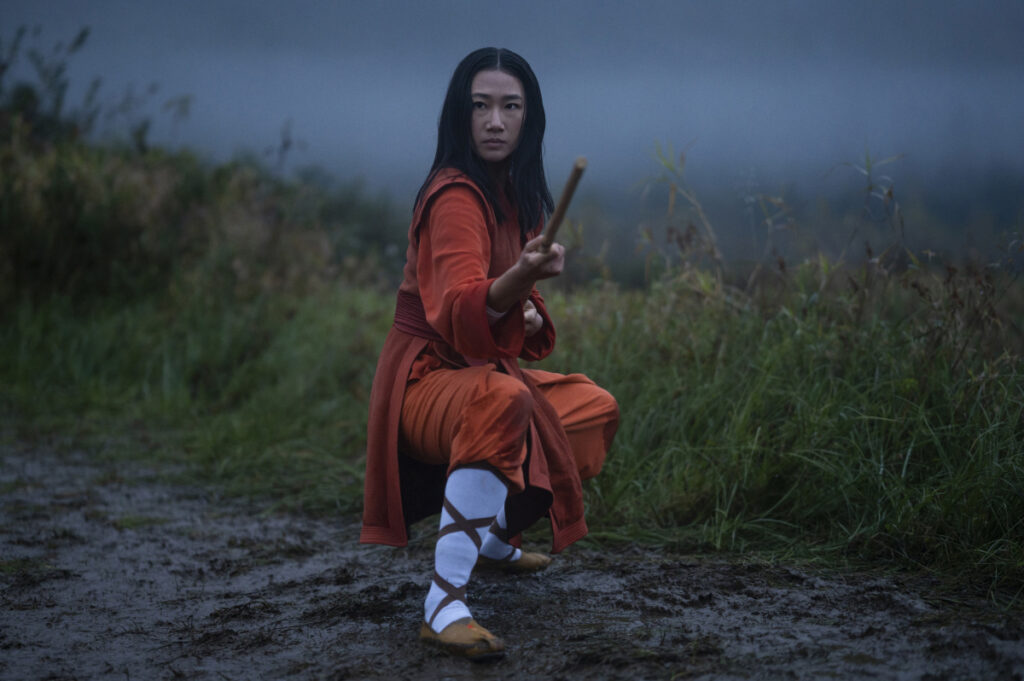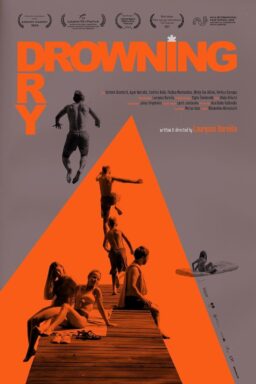Anyone coming to the Christina M. Kim (“Lost”) CW reboot of “Kung Fu” expecting a hazel-eyed David Carradine clone exploring the Old West will be greatly surprised. In 1971, Bruce Lee pitched the unique concept of a Chinese immigrant endowed with supreme martial-arts skills roaming the American West after the 1870s San Francisco Tong Wars. Television executives balked at the idea of an Asian lead, and then cast Carradine a year later in his breakout role as Kwai Chang Caine—an orphaned son of an American man who is trained at a Shaolin Monastery in the martial-arts, and ventures to America following the death of his mentor—in the original series “Kung Fu.”
In Kim’s enthralling iteration (one episode was given for review), she rights the wrongs of appropriation to fashion a modern, painfully relevant take that features high-flying action papering over a melodramatic script.

Kim’s soap opera swings arrive fast and early when, through voiceover, Nicky Shen (Olivia Liang) recalls how her mother (Kheng Hua Tan) sent her to China on a matchmaking tour for prospective suitors. Rather than facing her mother’s extreme expectations, Nicky jumps into a pick-up truck belonging to Shaolin priest Pei-Ling (Vanessa Kai), travels with her to a monastery, stays for three years, leaving Harvard, her family, and her boyfriend behind. Yikes!
After tragedy befalls the all-woman temple she calls home, wherein a mysterious foe, Zhilan (Yvonne Chapman) steals an ancient magical sword, she returns back to San Francisco to not just recover the artifact, but to face the life she left behind. Nicky’s sister (Shannon Dang) is now getting married; her brother (Jon Prasida) despises her; her overbearing mother has disowned her; and her ex-boyfriend (Gavin Stenhouse), now an Assistant District Attorney, has moved on to a new girlfriend. The only person still emotionally familiar to Nicky is her doting father, played by the consummate Asian dad, the acclaimed Tzi Ma. All of these beats arrive frankly, in a rushed sorta way, making their earnestness highly melodramatic.
Outside of the basic premise, Nicky’s Shaolin monk training, this “Kung Fu” bears little resemblance to Carradine’s wandering Western-themed series concerning the exoticism of martial arts and the East. Rather the modern reboot’s closer model appears in the crime fighting, San Francisco Chinatown-set 1990s iteration, “Kung Fu: The Legend Continues,” wherein Carradine, playing Kwai’s grandson, battles local crooks with his son Det. Peter Caine (Chris Potter).
In this first episode, Nicky similarly battles the same forces when she discovers that local kingpin, Tony Kang (Tristan Liu), is shaking down her father after her mother took out a $50k loan from the crime boss. With their debt to Kang now skyrocketing to $100k, his goons put her father in the hospital after a vicious beatdown, causing Nicky to take matters into her own hands. She and Henry (Eddie Liu), a possible dreamboat love interest, plan to find other Chinatown business owners struggling under the oppressive thumb of the loan shark. With the real rise in violence against AAPI folks, most notably the recent shooting of eight Atlanta spa workers, seeing the Asian characters in “Kung Fu” band together to defend themselves against brutality carries an added, unintended weight—a power that hits with significant force on every leg sweep and impactful punch Nicky delivers.
In a premiere brimming with melodrama, the visceral fights are imbued with grounded emotion. Rather than solely relying on bone-crunching thumps, Kim chooses full shots and minimal cuts to offer a fluid look that puts the artful martial-arts choreography in the center. During these sharply refined showdowns, with gangsters and ninjas alike, Nicky displays a comfortability that greatly differs from her tumultuous family and personal life. Moreover, seeing an Asian woman not sexualized—Nicky dresses in the practical wear of jeans and a denim jacket, with a sling bag—but still providing action-star moments makes “Kung Fu” a welcomed change of pace from the Dragon Lady othering of a “Kill Bill” or a “Rush Hour 2.”
Liang, the relative newcomer, holds together the odd mix of modernity, mysticism, soapy arcs, and acute action with intuitive ease. Indeed, she and Kim make a formidable creator-star duo. And this “Kung Fu,” which places Asians on network television at the center of their own story, not only provides needed representation, but reaps big thrills in the process.
One episode screened for review.












